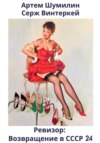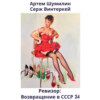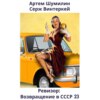Читать книгу: «The Duke in the Suburbs», страница 8
There was a light step behind him, and he was joined by the Duke.
"See anything," whispered the Duke and pushed a Colt into his hands.
"Nothing," said Hank, "he's gone."
Noiselessly they wriggled the garden length.
Hank made for the place where the ladder should have been, but his sweeping arm could not find it. Later it was discovered against the wall at the end of the garden.
Kymott Crescent is an offshoot of Kymott Road.
If you take the letter Y, the left fork to represent the Crescent, and the straight line and right fork to represent Kymott Road, you may realize the easier how the mysterious assassin escaped. For on the other side of the wall at the end of the Duke's garden is a main thoroughfare, deserted at this hour of the night, and it was as simple a matter to gain access to the garden as it was to escape from it.
They returned to Tuppy, a preternaturally solemn figure, sitting entrenched behind a divan which he had thoughtfully upended.
"He's gone," said the Duke cheerfully, but awoke no responsive gleam in Tuppy's eye.
"Oh, he's gone, has he?" said Tuppy absently.
"Yes, nipped over a ladder – I say, Tuppy, you're not scared?"
"Not a bit, oh dear no," replied Tuppy, without any great heartiness.
"There wasn't any danger, you know."
"Of course not," said Tuppy airily, "quite so."
He glanced apprehensively at the shattered glass of the door.
"Better put up the shutters, old feller," he said with a careless wave of his hand, "there's a beastly draught."
There were, as it happened, two folding shutters, artfully concealed at the side of the door, which Hank closed.
Tuppy sighed explosively.
"Of course," he said, "a little thing like that wouldn't worry me. To a feller who has seen the ups an' downs of life, especially the downs, an incident of this description – put the bar over that shutter, Hank, old friend, I still feel the draught – an incident of this description is mere child's play – I think I'll toddle."
The Duke protested.
"So soon! oh rot, Tuppy, stay and make a night of it. I want your invaluable advice, Tuppy; I'm at sixes and sevens."
"Not to-night, old boy," said Tuppy earnestly, "got a shockin' headache – too much port – liver out of order."
They escorted him to his door.
Safe inside the portals of his own mansion Tuppy recovered his spirits.
"If the fishin' is as excitin' as the shootin'," he mused aloud, "I've got hold of a fine sportin' estate."
VI
Mr. Nape, the eminent editor, sat before his desk in the editorial offices of the Aristocrat. His long black hair was rumpled, his pen-holder bore marks of a severe biting. Before him were pigeon-holes neatly labelled "Government – Attack on," "Imperialism and Crime," "Comprenez Vous?" (this was the already famous rival column to "On Dit" in a rival sheet), "New Ideas," "Notes for Leader" and similar comprehensive titles. There was a pigeon-hole marked "Advertisements," but this was empty.
Mr. Nape was sore, for the L. & L. Mailhad discovered the identity of the Aristocrat's editor, and had referred to him as "a peddling crimemonger" and a "contemptible plagiarist," to say nothing of calling him "a pseudo Holmes."
In consequence, he had for three days, devoted himself to a feverish hunt into the antecedents of Mr. R. B. Rake.
He learned that Mr. Rake had at one period of his career been engaged as schoolmaster – a peg to hang "priggish pedagogue" upon – that he drew inspiration for his leaders from Hydeholme ("gregarious gramophone"), that he was a gentleman of loud voice and aggressive self-confident manner – "pomp and circumstance" wrote Mr. Nape cleverly, and other more or less important items, all of which went into the Leader.
In truth Mr. Nape's reply to the slanderous innuendoes of the L. & L. Mail might be described as having been effective and complete.
Now Mr. Nape was in a quandary, because he was engaged in a distasteful task.
This was none other than the booming of the Tuppy party and, worst of all, the editing of a letter of apology.
It would appear in the first case, that in honour of our distinguished neighbour, Lord Tupping, Mrs. Stanley Terrill would give a reception at her house; that amongst others the following eminent people would be present. Sir Harry Tanneur, the Mayor of Brockley, the Vicar, Captain Hal Tanneur (9th R.W. Kents) and others too numerous to mention. Bewildered that the citadel of the Duke's fiancée should shelter the arch enemy, Mr. Nape had commenced a long and scathing satire entitled "The Pier Master" (a happy description of Sir Harry), when peremptory orders came for its suppression and the substitution of laudatory notices concerning the forthcoming function.
It had required all the Duke's powers of persuasion to induce Tuppy to accept the invitation.
"It's a plant," said Tuppy furiously, "it's the old Tanner bird showin' off the captive at his chariot's wheel: he's dazed that poor dear lady into givin' a party – I'm not goin'. High Jupiter! Devastin' Ulysses!" he swore, "did that dear old thing Guy Tuppin' go down on the stricken field of Crecy, all mucked about with two handed sword an' maces an' things, for this! Did – "
"You cannot escape a tea-party by reference to your alleged ancestors," said the Duke calmly, "in the stricken field time of business Tanner can give you a stone and a beating. Tuppy, you've got to go."
So Mr. Nape sat, though his soul revolted, engaged in writing pleasantly and amiably and heartily, a fore-notice of the reception which was to introduce Lord Tupping to his awe-stricken neighbours.
His task was made all the more difficult by the knowledge that already public interest had been aroused in the attempt to jockey the Duke from the suburbs. That letters signed "Fair-play" and "Pro Bono Publico" had begun to arrive, that a meeting of the Ratepayers' Association had been projected, and that there were not wanting other signs of the Duke's growing popularity in the neighbourhood. Mr. Nape had suddenly found himself a political force; he had the satisfaction of knowing that he was behind the scenes; crowning joy of all, he had been referred to as a "wire puller" and had displayed the significant phrase, with an affectation of nonchalance, to Hank.
"He means a leg puller," said Hank.
"We don't think you treat this matter seriously enough," said Mr. Nape severely; "we have a certain duty to our party; a certain responsibility to our public; the whole district is ripe for change; the job of dismissing the water-cart man has roused considerable feeling; the appointment of the workhouse master's son to the position of rate collector is a scandal – people are asking how long, how long?"
"How long?" demanded the Duke.
"How long," repeated Mr. Nape.
"I mean how long have they been asking that remarkable question?"
Mr. Nape coughed modestly.
"It coincided with the appearance of our little leaderette on 'Subconscious Corruption,'" he admitted.
As to the letter of apology, the Duke silenced criticism with extraordinary brusqueness. The change in the policy of the Aristocrat was revolutionary. It affected Mr. Nape dismally, it affected Mr. R. B. Rake, editor of the L. & L. staggeringly – it had a paralysing effect upon the household at Hydeholme.
"Now what on earth is the meaning of this," demanded the knight. He stabbed the newspaper with his short forefinger. The article it referred to was headed "An Open Letter."
It began —
"To one whom I have offended."
"That's me, of course," said the knight and read on.
As he read and re-read he grew more and more bewildered, for this was an apology, an abject grovelling plea for forgiveness.
"It is forbidden that I should see you —"
"Quite right," said Sir Harry. "I told William that under no circumstance he was to admit him."
"My letters are returned unopened" (Sir Harry smiled grimly. He had received a letter in the Duke's handwriting and had promptly reposted it), "and with every day comes a surer knowledge of my error in opposing your will…
"It is this realization that has decided me upon my future conduct. You wish me to go away – I will go. You wish me to be more considerate" – ("I've never said so in so many words," commented the knight) – "you desire that I should forego all local ambition and retire to the oblivion from whence I sprang – so be it."
"Remarkable," was all that Sir Harry could say.
"If I have caused you pain by my presumption" – ("Pain!" said Sir Harry, and thought of the sixty thousand pounds) – "I am sorry. I return to the wilds, to the illimitable breadth and length of the wilderness. Here on some waterless plain, where vultures hover in the clear blue sky…"
"D'ye know," said Sir Harry helplessly. "D'ye know, Hal. I really cannot understand this business. I really can not. Last week he was referring to me as 'the sort of person who had made England what she was' – in quite an objectionable way – spoke insultingly about the leather trade and referred meaningly to Hidebound Arrogance. Now – !"
"It's Tuppy!" said Hal. "I knew it would happen; Tuppy is the chap who is working the oracle. As soon as the idea occurred to me I said, 'By Jove! that's a corker!'"
Sir Harry fixed his pince-nez more firmly on his nose and continued to read —
"I have dared too much" ("I should jolly well say so," interjected Hal), "I have moved too fast and I pay the penalty. Our contract is broken" ("That's an important admission if he goes into court about the lease," commented Sir Harry over his glasses); "at the appointed time I will remove myself. Farewell."
Sir Harry folded up the paper. He looked at Hal, and Hal looked at him. Then Sir Harry took off his glasses, folded them and placed them ceremoniously in his waistcoat pocket.
"May we say," he queried with majestic calm, "that we have triumphed?"
Strangely enough this "Open Letter" inspired the same question in the mind of Alicia Terrill.
VII
Luckily Mrs. Terrill, by her simple device of opening the folding doors that separated the drawing-room from the breakfast-room, was able to offer one fair sized apartment for the accommodation of her guests. Built almost identically on the same lines as that occupied by the Duke, No. 66 had been transferred (as the Lewisham and Lee Mailin a breathless article described it) into "a veritable bower of roses equalling in stateliness and expensiveness the most splendid habitations of Belgravia and the West End."
It was Hal's idea that the conservatory at the back, and which, as in the Duke's house, was an annexe to the breakfast room, should be converted, by means of three flags and a red carpet ("a lavish display of bunting," said the Lewisham and Lee Mail), into a sort of throne room. Hither Tuppy was conducted.
Tuppy was very irritable and very beautiful in his dress kit, and one by one the guests were ushered into the presence.
Hal was a self-appointed M.C.
"Mr. Gosser and Miss Gosser," announced Hal.
"Glad to see you – how do you do."
"Mr. James Fenton, Mrs. James Fenton and Mr. Fenton, Junior."
"Happy to meet you – how de do?"
"Mr. Copley, Mr. Minting, Mr. Arthur Brown."
"Oh damn it! How de do, how de do?" wearily. It must be understood that much of Tuppy's greeting was sotto voce.
"Miss Sprager, who's a very fine fiddle player."
"How de do – beastly cold isn't it?"
"Mr. Willie Sime – brought any songs, Sime?"
"Got a shocking cold, old chap."
"Thank heavens – glad to meet you, Mr. Sime."
"Mrs. Outram."
"Weird old bird – how are you, Mrs. Outram, glad to meet you."
"Mr. R. B. Rake, B.A. The editor of the Lewisham– "
"I am honoured to make your acquaintance, my lord," said the boisterous journalist, "there is no more pleasing feature of our modern life than the democratizing of the peerage."
"Noisy devil! How de do – glad to meet you."
"Mr. Pulser, Mrs. Pulser, Miss Pulser."
"Oh Lord! how many more of em? Glad to meet you, how de do?" There was scarcely room to move, the guests overflowed into the hall and on to the stairs.
Sir Harry, wedged in one corner, surveyed the scene with a glow of pardonable pride. To him it represented the Duke's coup de grâce.
Mr. Rake wormed his way through the press of people to his side.
"Well, sir?" demanded Mr. Rake.
He said this in a tone that suggested that he had only omitted "what did I tell you?" out of pure politeness.
For Mr. Rake had an unpleasant knack of claiming personal credit for all and sundry happenings, from weddings to earthquakes, no matter how little he had to do with their instigation, that had earned for him amongst his colleagues the title of "Prophet of the Afterwards."
"This, I think," Mr. Rake went on, "effectively settles our friend."
Sir Harry nodded.
"The letter of course was the official suicide, this might aptly be described as the wake."
Arousing no enthusiasm he continued —
"What a remarkable man Lord Tupping is!"
"Yes."
"So popular!"
"So it appears."
"Everybody is simply charmed with him! It is 'Lord Tupping this' and 'Lord Tupping that' on every hand!"
"Yes, yes," said Sir Harry indulgently, "Tuppy is a good fellow." The good fellow at that moment was expostulating with Hal.
"Now look here, Tanny, old friend," he said firmly. "I'm not goin' to meet anybody else. I'm sick of this business an' I'm dashed if I'm goin' to stick it any longer."
"It will be soon over, old man," soothed Hal, "we've finished the Duke."
"Oh!" said Tuppy absently.
"Yes – didn't you see the letter he wrote to the governor in his rag."
"No," said the innocent Tuppy.
"What! not the bit about the vultures in the air, and the brazen sky!"
"Blue sky," corrected Tuppy, and went on hastily, "I suppose you mean blue, don't you?"
"Blue or brazen," said Hal carelessly, "it was a lot of infernal rot."
"My dear old feller," said Tuppy huffishly, "eminent strategist an' military authority as you are, incisive analyst of character as you may be; rampin' rhetorician an' high steppin' logician as in all probability you imagine yourself to be, I cannot accept your dictum on literary quality or diction. I thought that vulture touch was exceptionally imaginative, and the introduction of the blue sky supremely delicate."
"Anybody would think that you had written that bit yourself," chaffed Hal. Tuppy was not to be appeased.
"That's beside the question," he complained.
Then Alicia interrupted them.
She monopolized Tuppy, and Hal, after a vain attempt to join in the conversation, withdrew a little sulkily.
"Lord Tupping," she asked, "aren't you feeling a terrible hypocrite?"
"Not unusually so, dear lady," said Tuppy.
"Sir Harry thinks that you are not on speaking terms with the Duke."
Tuppy coughed.
"At the present moment I ain't," he confessed, "it is over a little question as to whether potatoes should be boiled with salt. I say without, but he's a most obstinate beggar lately – since his trouble."
Alicia ignored the addition.
"Who wrote that dreadful letter," she asked suddenly.
"What letter?" Tuppy's face was a blank.
"Oh, please don't pretend that you are ignorant – that wretched letter full of nonsensical – "
Tuppy drew himself up.
"Dear lady," he said stiffly, "if you refer to the vultures – "
With a woman's quick intuition she guessed at the authorship of that piece of imagery.
"No – I am not referring to that portion of the letter," she said tactfully, "in fact I thought that little touch rather fine," she added, inwardly praying for forgiveness, "but the letter in general – the whole idea, it was the Duke's, of course?"
"The less imaginative part was the Duke's," confessed Tuppy, "the crude outlines, so to speak, the framework – "
"Well," she broke in, speaking rapidly, "you are to tell the Duke that he must not do such a thing again; I will not receive farewell messages through the public press – indeed, you may tell him that nothing will induce me to read the paper again."
"I say," protested Tuppy, "don't say it! Next week's letter ain't half bad – "
"Next week!" Alicia's blood boiled. "Do you mean to tell me that he dares to repeat – "
"He's written twenty already," said the informer, "some of 'em good, some of 'em so, so. There's a very fine one called 'The Profits of Penitence' that'll appear in the Christmas number. That's a tremendously touchin' thing – about Christmas bells an' children dyin' in the snow."
Alicia had no words by now.
She gained self-possession with an effort.
"You – must – tell – the – Duke," she began.
"Why not tell him yourself," suggested Tuppy.
Somebody at the far end of the room had just finished singing, and people who had found seats were smiling sweetly at people who were standing. And people who were standing were smiling back and saying "selfish pig" under their breaths, when Sir Harry mounted a chair, and instantly the hum of talk died down.
"My friends," said Sir Harry, "I feel that we cannot separate to-night without my saying a few words concerning the object of this gathering (cheers). We have met together to do honour to our neighbour, Lord Tupping (loud cheers).
"Heaven and earth!" fretted Tuppy, "why doesn't he leave me alone?"
"Lord Tupping," Sir Harry went on, "has shown us, by example, the attitude of the typical English peer. Dignified, yet gracious; reserved, yet approachable; he combines generosity with restraint and is a striking contrast to the pseudo-nobleman, whose unedifying behaviour has, I think I am right in saying, scandalized our beautiful suburb."
"I say! I say!" said Tuppy indignantly, but nobody heard him.
"As oil to water," said Sir Harry, "as the genuine is to fictitious, so is the old nobility to the upstart – I should say, so is the English nobility to the – er – foreign: they do not mix; they have nothing in common; their ideals are separated by an immeasurable gulf."
"We cannot but be sensible," the knight proceeded, when there was a commotion at the doorway and a tall man pushed his way through. It was the Duke, hatless, pale and a little breathless.
"Tuppy!" he called, and to Sir Harry's amazement the object of his panegyric came half-way to meet him. In the silence that fell upon the assembly every word of the conversation was audible.
"Tuppy, did you come over the garden wall to-night?" was his astounding question.
"No, old feller."
"Sure?"
"Sure, dear boy."
The Duke stood thinking.
"Then you didn't drop this," he said and held out his hand.
It held a silver-mounted cigar case.
Sir Harry recognized it with a smothered oath. It was the case he had given to Bill Slewer.
"It is inscribed 'Harry Tanneur,'" said the Duke, "and the gentleman who dropped it in his hurry left me a further token of his regard."
He held up his other hand, and Alicia gave a little cry, for the hand was swathed in a pocket handkerchief, ominously scarlet.
Part V
THE DUKE ADVENTURES
I
It was nearing the period when "something would have to be done." These were Olejoe's exact words. With an action pending in the High Court, the presence of the brokers' man was suggestive rather than conclusive. Olejoe was a splendid splash of colour, a picturesque accessory, but as Tuppy pathetically complained, he had not as yet justified the trouble and expense.
It is true that with a silver salver in his hand he had replaced the sedate servant. That he received visitors and showed them in; that clad in his striking raiment he negotiated with the butcher and the milkman, and that he was one of the Sights. More than this, he was admitted into the family circle, and was invariably introduced to callers as "my brokers' man" or "my possessionist," With Tuppy's coming the question of Olejoe became a vital one. Tuppy, it may be said, was now an inmate of 64. A curt note from Sir Harry's solicitors had terminated his tenancy. Supplementary to this was a letter from Sir Harry himself in which he dealt freely in such phrases as "two-faced duplicity," "run with the hare and hunt with the hounds," "betrayal of a sacred trust," and similar happily coined phrases of opprobrium.
"The perfectly horrible thing is," Tuppy said in bitterness of spirit, "I've given up my flat in Charles Street, an' it's a thousand to thirty the landlord won't take me back again, unless I pay something off the old account."
The Duke pressed him to stay, and Hank was extremely urgent in his invitation.
"The Duke should surely have somebody he can talk 'blighted hopes' to," he said: in his capacity as An Authority on Women, Tuppy stayed.
Thus Olejoe came to be a problem, for Tuppy brought the faithful Bolt, and No. 64 was not built for the accommodation of a house party.
Olejoe, therefore, became the pivot around which revolved a ceaseless whirl of discussion.
He was a Domestic Crisis.
"Something must be done with Olejoe."
This was the beginning and the end of the agenda under review.
Olejoe was present at the most important of these. From time to time he interjected expostulatory noises.
"A Johnny man that I know," said Tuppy reminiscently – "I don't exactly know him, but I owe his brother a hundred, which to all intents an' purposes extends my acquaintance – because if I don't know him, he is pretty sure to have heard about me from the brother fellow, who's a deuce of a bleater about money affairs – "
"I'll look him up in the Dictionary of National Biography," said the Duke; "in the meantime, this man – ?"
"Well, this man used to go to the wooliest places – Africa an' Klondike an' similar horrid spots outside the radius; used to go bug huntin', an' lion fishin' an' bee-stalkin'. When he got something extra, in the way of skins or wings or feathers he used to send it to Wards, have it stuffed an' stuck up in his library. When I say 'library' I mean the place he used to sleep in on Sunday afternoons. But if he got something extra-extra, somethin' stupendously gape-ish, such as a pink lion or a sky-blue rattlesnake – somethin' absolutely priceless, he used to give it to some dashed museum. There was insanity in the family, mind you."
The Duke cast a calculating glance at Olejoe.
"We might leave him at the South Kensington," he mused.
"Stuffed?" suggested Hank.
"In a box," said Tuppy enthusiastically, "with a rippin' big label on the top, 'A present to the Nation from a True friend' or some rot like that."
"Or in lieu of conscience money," said the Duke, "from two who have robbed the inland revenue, asking finder to notify the same in the Times newspaper."
"Gents," said Olejoe with a forced smile, "foreigners I've always been obligin' to, without the word of a lie. Orgin grinders, ice-cream blokes, an' ladies who tell your fortune with little dickey birds wot pick a bit of paper out of the box to tell you whether your husband will be dark or fair, an' how many children you're goin' to have. If you treat others well, you can expect to be treated well yourself. Do unto others as thyself would be done is a sayin' old an' true – so no larks, if you please."
"When you started that interestin' exposition on tolerance of the alien," said Tuppy aggrieved, "I was under the impression you were goin' to say somethin' particularly apposite."
"No larks," confirmed Olejoe.
"Say," said Hank suddenly, "what's the matter with sendin' him to the Tanneur guy?"
"Alive?" asked Tuppy in a matter of fact tone that made Olejoe shiver.
"Why sure; send him along with a tag tied to his coat – it's gettin' round about the festive season when you give away things you've no use for."
"I feel certain," said the Duke, "that Olejoe could be used for some wise purpose. An age that has found employment for bye-products in general, should not be at a loss for using up this variety. The difficulty about the knight is that he's going abroad."
"Abroad?"
"Abroad – whether that means a season at the Riviera or an exploration of the Sandwich Islands, I cannot say. But abroad he's going, or gone."
"We couldn't send our dear old friend as a courier?" questioned Tuppy. "A sort of unofficial dragoman?"
But the Duke shook his head.
"The situation is this," he said. "We take a house; the knight buys out our landlord; we refuse to pay rent; the knight puts a broker's man in; we're tired of the broker; we've no room for the broker; he has outlived his usefulness; Q. What should A do with B?
"We might, of course, bury him in the garden," the Duke went on, "thus enriching the soil; we might wait for a foggy night, take him out and lose him – "
"Monty! I've got it!"
The inspiration had come to Tuppy with extraordinary suddenness.
"Pay him out."
"What?"
"Pay the rent," said Tuppy solemnly; "it's unusual in cases like this, an' it's a bad precedent: but as a solution it's got points you could hang your hat on."
II
It is a fault of some authors, that they persistently refuse to introduce characters into their stories, unless those characters in the course of the narrative, perform an act or acts, of such transcendent importance as to make the story impossible without their presence. Accordingly we are familiar with the faithful servant who meanders through 300 pages with little to say for himself save "Dinner is served, your Grace," and "His lordship has not yet returned from 'unting, m'lady;" who is deliciously obscure until the end of the book, when he gives his life for the children, or produces the missing will. We know of governesses, pretty and otherwise, who are the merest shadows for twenty chapters, but enter into their kingdom in the twenty-first, when they accuse the Earl of unblemished character of being the father of the beggar boy.
I could have wished that Olejoe might have passed from these pages naturally, and without fuss, just as people pass from the real pages of life, without ostentation, noiselessly ignoring the rules of the theatre, which demand that no character shall leave the stage without an effective "line" to take them "off," such as "We meet to-morrow!" or "Look to it, Sir George – look to it!" or in the cases of more important figures, a long and heroic peroration.
The rules of the theatre do not insist upon heroics for a part like Olejoe's. I think something like this would have fulfilled all requirements —
Olejoe (one foot on doorstep, bundle slung over shoulder):
Farewell, my lord.
Farewell, my noble Duke: the elms shall bud
To greeny leafness, and the summer sun
Shall gild the cupula of this great house.
I pass to winter, to an endless night,
Bereft of your bright presence: for this gold,
This token of your grace, my charged heart
Puts lock upon my tongue (business with handkerchief). Farewell!
There were, as it happened, certain lines to be said by Olejoe in the natural course of events, for the broker's man shares with the waiter, the boots, the chambermaid, and the hotel porter the same characteristic and absolute repugnance to effacement.
The bailiff's receipt lay on the table, and Olejoe in a ducal coat, a lordly pair of trousers and a cowboy hat, the united contributions of the household, took the handsome tip the Duke had delicately slipped into his hand, and with tearful eyes expressed his gratitude.
"Gents all," said Olejoe, who had little knowledge of and regard for the stateliness of blank verse, "as man to man I'm obliged to you. If I've done anything that I oughtn't have done I ask your pardon. I've had me dooty to do an' I've done the same to the best of my ability. I've always found you to be gentlemen, an' if any one sez contrary, it'll be like water on a duck's back – in at one ear an' out at the other. If I can ever do you a turn as far as lays in me power, I'm ready an' willin', an' with these few remarks I thank you one an' all," which was a highly creditable speech.
So passed Olejoe, and I would that no further necessity existed for introducing him again, so that I might emphasize my protest against convention in art.
"The House will now go into committee," said the Duke, "on a purely personal matter – Hank, I'm feeling most horribly worried."
"If it's the eternal feminine woman," said Hank rising quickly, "as I've got a hunch it is, you'll find me in the back lot plantin' snowdrops."
"You're beastly unsympathetic," complained the indignant Duke, "here are two loving hearts – "
"Anatomy," said Hank at the doorway, "is a science I've no love for since the day the Dago doctor of Opothocas Mex. amputated my little toe under the mistaken impression that ptomaine poisonin' was somethin' to do with the feet."
"What we've got to do now," said Tuppy, when the unromantic Hank had disappeared, "is to get somethin' particularly touchin', I'm afraid I've spoilt the other letters, by unintelligently anticipatin' the contents."
"What an ass you were, Tuppy," said the Duke testily, and Tuppy cheerfully agreed.
For two hours they sat composing the wonder working epistle.
"To whom it may concern," it was addressed, and began "What is life? says Emerson."
"That's a fool start," said Tuppy. "Why drag in old man Emerson anyway?"
"Can you suggest a better?" asked the Duke tartly.
"What's the matter with this," asked Tuppy, "you know the Tennyson stuff." He knit his forehead in the effort of remembrance. Then he recited, filling in the blanks as well as he could —
It's jolly true tum-tum befall,
I feel it tum-tum tum-tum most;
It's better to have loved a gal
Than never to have loved at all!
"Rotten," said the Duke.
"I don't think I have quite got the lines right," Tuppy owned, "but any feller can see the drift of the thing."
"If ever I write poetry, Tuppy," said the Duke solemnly, "I should be very grateful if you would refrain from quoting it."
The Emerson opening was allowed to stand. Tuppy made another determined effort to introduce a flower of poetry into the letter when it was nearing completion.
"Look here, Monty. Why not work in that bit about
Love to a girl is a thing apart,
'Tis a feller's whole existence?"
"Partly," said the Duke, "out of respect for the dead, whom you are misquoting. It runs 'Love to a man is a thing impart!'"
"She wouldn't know the difference," said the sanguine lord.
"That's beside the question: this is supposed to be an open letter addressed to Sir Harry; I can't chuck words of poetry at his unfortunate head – after all he's been punished enough."
They broke off their composition to join Hank in the garden whilst the sedate servant laid the table for lunch.































